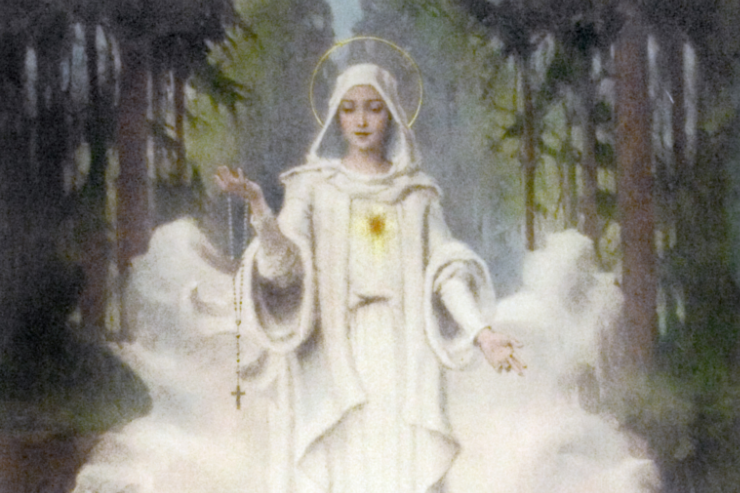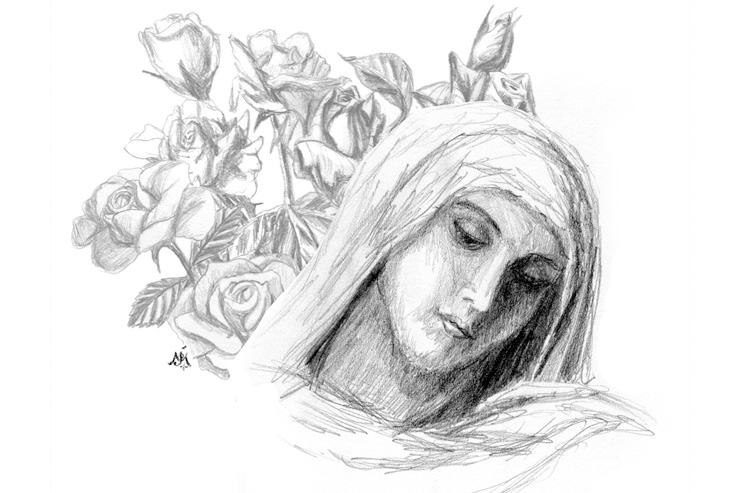 The song “O Holy Night” is usually heard throughout the holidays, even in secular environments, because it is so inspiring. The text was written by the French poet, Placide Cappeau de Roquemaure in 1847 and titled “Cantique de Noel.” Cappeau was the commissionaire of wines in a small French town. The parish priest asked him to write a Christmas poem, and good-naturedly Cappeau agreed. He was an atheist, but he turned to Scripture, the Gospel of Luke, to write his poem.
The song “O Holy Night” is usually heard throughout the holidays, even in secular environments, because it is so inspiring. The text was written by the French poet, Placide Cappeau de Roquemaure in 1847 and titled “Cantique de Noel.” Cappeau was the commissionaire of wines in a small French town. The parish priest asked him to write a Christmas poem, and good-naturedly Cappeau agreed. He was an atheist, but he turned to Scripture, the Gospel of Luke, to write his poem.
Inspired by the words, he then asked his friend Adolphe Charles Adams to compose music to go with the poem. His friend, who was of Jewish ancestry, was also moved by the words about the light of Faith and the birth of a Savior. The song was performed at a midnight mass on Christmas Eve three weeks later and denounced by the French priests for its lack of musical quality, or so the story goes, but the inspiring song continued to circulate nonetheless. A decade later and a continent away, the lyrics were rewritten to their current form by a Unitarian minister in Northampton, MA named John Sullivan Dwight.
The line “De notre foi que la lumière ardente/Nous guide tous au berceau de l’Enfant” translates to “May the ardent light of Faith/Guide us all to the cradle of the Infant.” These words retained their original meaning in Dwight’s version. We know them as, “Led by the light of Faith serenely beaming/With glowing hearts by His cradle we stand.” Although the song is about Christmas Eve, it is also about the anticipation of Advent.
This longing for light, truth, and redemption is universal. For instance, ancient religions worshiped the sun. The difference in worshiping the sun and worshiping the Christ the Savior—whose name shall rise up for ever above the sun, and in Him shall all nations be blessed (Psalm 72:17)—was a major apologetic point for the Early Christian writers. Pope Francis began his 2013 encyclical, Lumen Fidei, by referencing St. Justin Martyr’s address to the pagans and Jews of his time. The point is powerful. No one has ever died for his faith in the sun. Consider St. Justin Martyr’s words from the second century:
God formerly gave the sun as an object of worship, as it is written, but no one ever was seen to endure death on account of his faith in the sun; but for the name of Jesus you may see men of every nation who have endured and do endure all sufferings, rather than deny Him. For the word of His truth and wisdom is more ardent and more light-giving than the rays of the sun, and sinks down into the depths of heart and mind. Hence also the Scripture said, ‘His name shall rise up above the sun.’ […] But if He so shone forth and was so mighty in His first advent (which was without honour and comeliness, and very contemptible), that in no nation He is unknown, and everywhere men have repented of the old wickedness in each nation’s way of living, so that even demons were subject to His name, and all powers and kingdoms feared His name more than they feared all the dead, shall He not on His glorious advent destroy by all means all those who hated Him, and who unrighteously departed from Him, but give rest to His own, rewarding them with all they have looked for?
(Dialogue with Trypho, Chapter 121)
Advent is a season of bringing the Gospel to a world pining for truth and love. People still need Christ, just as they did in the 2nd century and the 19th century, and all centuries before and in between and to come. Our job is to proclaim the Gospel with glowing hearts—with the ardent and life-giving light of Faith.
Enjoy this inspiring video, the Christmas Flash Mob by Journey of Faith at South Bay Galleria (2010).
[youtube id = “Vnt7euRF5Pg”]














